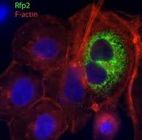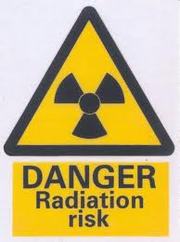What is a risk factor?
A risk factor is something that increases your chances of getting a disease. Sometimes, this risk comes from something you do. Other times, there's nothing you can do about the risk. It just exists.

Genetics
Although the cause of leukemia is unknown, researchers have discovered that several factors can increase the risk of developing leukemia, such as genetics, exposure to chemicals, exposure to high levels of radiation, previous history of chemotherapy, smoking, and drug abuse.
Genetics
It is believed that people with a family history of leukemia have a genetic predisposition towards developing the disease. Also, people with down syndrome or chromosomal abnormalities have a greater risk of leukemia.
Genetics
It is believed that people with a family history of leukemia have a genetic predisposition towards developing the disease. Also, people with down syndrome or chromosomal abnormalities have a greater risk of leukemia.
Exposure to Harmful Chemicals and High Levels of Radiation

Radiation as a risk factor
Exposure to chemicals such as formaldehyde and benzene may increase the risk of leukemia. Medical radiation (such as frequent X-rays) or nuclear power plant accidents can also increase the risk. Atomic bomb fallout and radiation also greatly increases the risk of leukemia. When the United States dropped the atomic bomb on Hiroshima and Nagasaki, Japan during World War II, the soldiers had no idea of the extent of its destruction or the terrible consequences it would have on the Japanese people. For generations after the atomic bomb was dropped, babies were born with severe birth defects and greater risks of leukemia and other forms of cancer.
Lifestyle factors: Smoking and Drug Abuse
While genetics, exposure to chemicals, exposure to radiation, and previous treatments of chemotherapy are for the most part uncontrollable, lifestyle factors such as smoking and drug abuse can be avoided. Such negative lifetstyle choices correlate with higher chances of developing leukemia (especially myelogenous leukemia), as well as several other types of cancer.
Lifestyle factors: Smoking and Drug Abuse
While genetics, exposure to chemicals, exposure to radiation, and previous treatments of chemotherapy are for the most part uncontrollable, lifestyle factors such as smoking and drug abuse can be avoided. Such negative lifetstyle choices correlate with higher chances of developing leukemia (especially myelogenous leukemia), as well as several other types of cancer.
